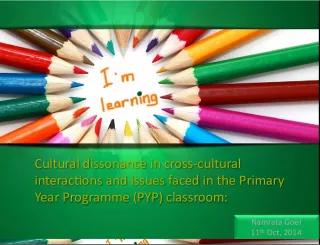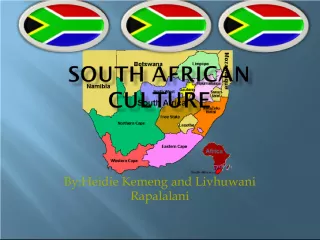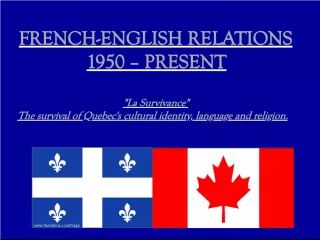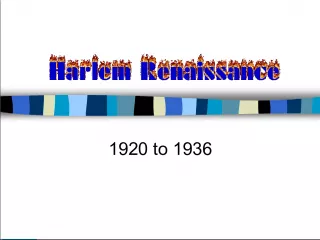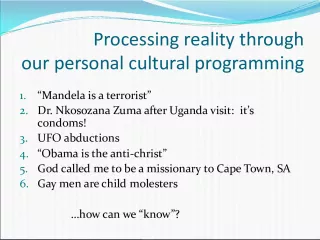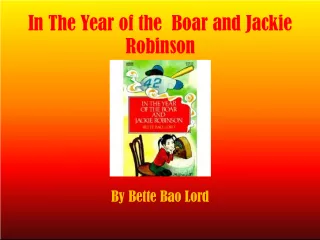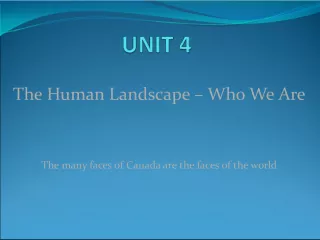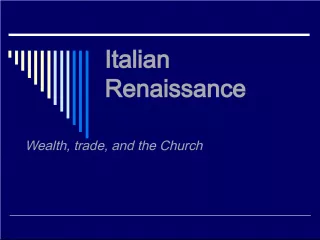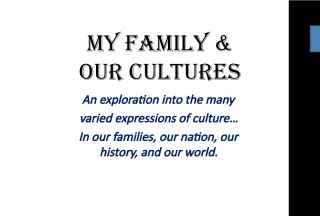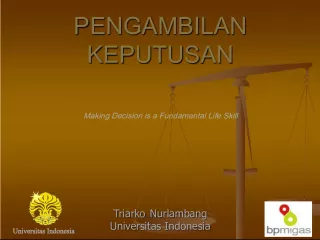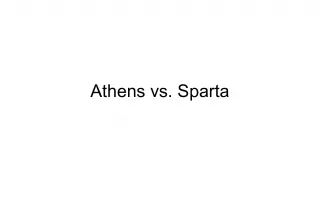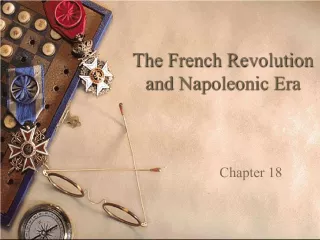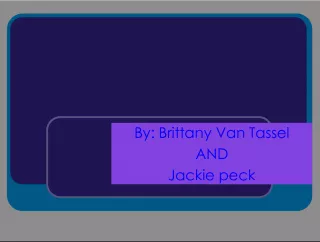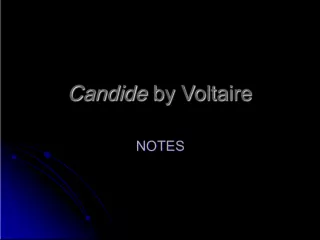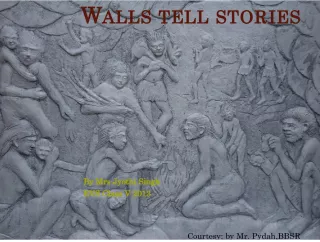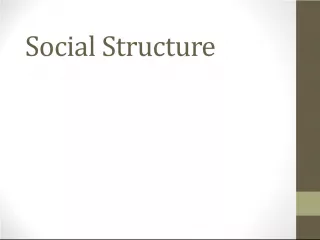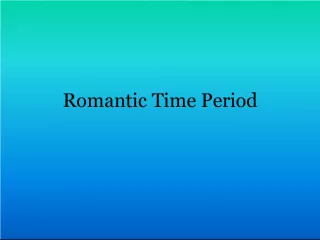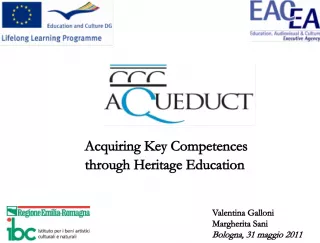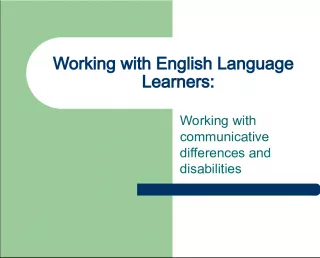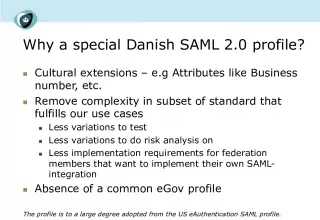The 9 Cultural Universals
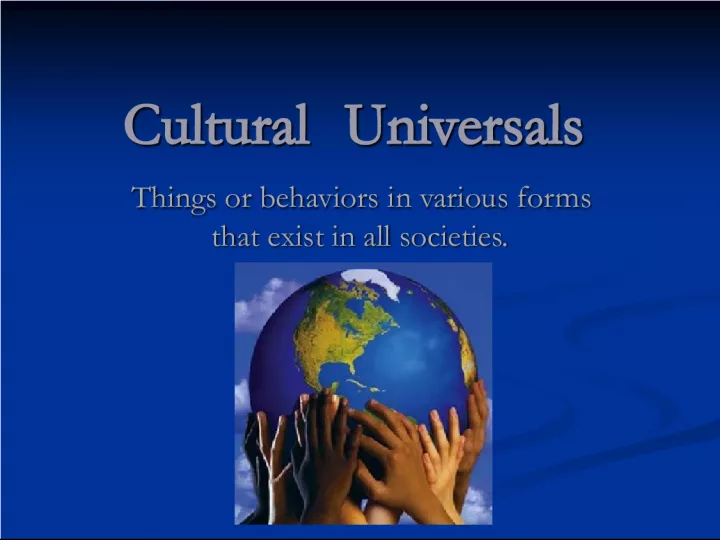

The 9 Cultural Universals refer to things or behaviors that exist in all societies in various forms. Material artifacts, which are objects created by groups of people, are one of the cultural universals
- Uploaded on | 1 Views
-
 orlanda
orlanda
About The 9 Cultural Universals
PowerPoint presentation about 'The 9 Cultural Universals'. This presentation describes the topic on The 9 Cultural Universals refer to things or behaviors that exist in all societies in various forms. Material artifacts, which are objects created by groups of people, are one of the cultural universals. The key topics included in this slideshow are . Download this presentation absolutely free.
Presentation Transcript
Slide1Cultural Universals Cultural Universals Things or behaviors in various forms that exist in all societies. Things or behaviors in various forms that exist in all societies.
Slide2The 9 Cultural Universals The 9 Cultural Universals 1. Material: 1. Material: Artifacts made by groups of people Artifacts made by groups of people Food Food Clothing and adornment Clothing and adornment Tools and weapons Tools and weapons Housing and shelter Housing and shelter Household articles Household articles Ritual items Ritual items Personal possessions Personal possessions
Slide3The 9 Cultural Universals The 9 Cultural Universals 2. Social Organization 2. Social Organization the ways that a group of people organize themselves in groups in order to function the ways that a group of people organize themselves in groups in order to function Families Families Kinship systems Kinship systems Clans Clans City-States City-States Nations Nations
Slide4The 9 Cultural Universals The 9 Cultural Universals 3. Social Control/Institutions: long-lasting ways of doing things that are important to people’s well-being. 3. Social Control/Institutions: long-lasting ways of doing things that are important to people’s well-being. Marriage/Family Marriage/Family Religion Religion Education Education Government/military Government/military Legal and penal system Legal and penal system Hospitals Hospitals Markets/Business/Corporations Markets/Business/Corporations
Slide5The 9 Cultural Universals The 9 Cultural Universals 4. Language: 4. Language: the use of a set of symbols, spoken or written, to communicate ideas and feelings. the use of a set of symbols, spoken or written, to communicate ideas and feelings. Nonverbal Nonverbal Verbal Verbal Written Written Symbols Symbols
Slide6The 9 Cultural Universals The 9 Cultural Universals 5. Arts, Play, & Recreation 5. Arts, Play, & Recreation the ways that a people express themselves creatively. the ways that a people express themselves creatively. Fine Arts: Fine Arts: Drawing, painting, etc. Drawing, painting, etc. Performing Arts: Performing Arts: Acting, dancing, etc Acting, dancing, etc Architecture Architecture Standards of beauty & taste Standards of beauty & taste
Slide7The 9 Cultural Universals The 9 Cultural Universals 6. Environment: 6. Environment: conditions that influence lives of a group of people. conditions that influence lives of a group of people. What does the environment in which we live affect? What does the environment in which we live affect? Human-Environment Interactions Human-Environment Interactions
Slide8The 9 Cultural Universals The 9 Cultural Universals 7. Economy: 7. Economy: the production (making), distribution (selling), and consumption (using) of goods and services. the production (making), distribution (selling), and consumption (using) of goods and services. Jobs Jobs Goods/services Goods/services Movement of goods/services Movement of goods/services Trade/exchange Trade/exchange
Slide9The 9 Cultural Universals The 9 Cultural Universals Education: Education: How a society teaches its values and traditions How a society teaches its values and traditions Informal Informal Formal Formal
Slide10The 9 Cultural Universals The 9 Cultural Universals 9. World View/Beliefs: 9. World View/Beliefs: something a group of people believe to be true. something a group of people believe to be true. Religion Religion Politics Politics Norms Norms Ethics Ethics Values Values
Slide11Culture Vocabulary Culture Vocabulary Culture: a complete way of life of people share similar customs and beliefs and pass on to their children. Culture: a complete way of life of people share similar customs and beliefs and pass on to their children. Customs: a common way of doing something among a group of people. Customs: a common way of doing something among a group of people. Society: a group of people who share a common culture. Society: a group of people who share a common culture.
Slide12Vocab…Vocab… Social Structure; the ways in which people are organized into smaller groups, each having its own particular task. Social Structure; the ways in which people are organized into smaller groups, each having its own particular task. Socialization: the process of learning to be part of a culture or society. Socialization: the process of learning to be part of a culture or society. Norm: a culture’s standards of behavior or rule that a member of a society is supposed to live by. Norm: a culture’s standards of behavior or rule that a member of a society is supposed to live by.
Slide13Vocab…Vocab… Ethics: the standards or code of moral behavior that distinguishes between right and wrong. Ethics: the standards or code of moral behavior that distinguishes between right and wrong. Value: an object, idea, or belief that a culture considers very important. Value: an object, idea, or belief that a culture considers very important. Economy: system in which goods and services are produced and distributed. Economy: system in which goods and services are produced and distributed.
Slide14Vocab…Vocab… Language: the way human beings pass on their culture. Language: the way human beings pass on their culture. Extended family: family with grandparents, aunts, uncles, grown children, parents, and small children living together. Extended family: family with grandparents, aunts, uncles, grown children, parents, and small children living together. Nuclear family: family of parents and their children living together. Nuclear family: family of parents and their children living together.
Slide15Vocab…Vocab… Role: the function of a person in a society. Role: the function of a person in a society. Status: the degree of importance we have in society. Status: the degree of importance we have in society. Icon: an image or figure that represents something (like a nation’s flag). Icon: an image or figure that represents something (like a nation’s flag).
